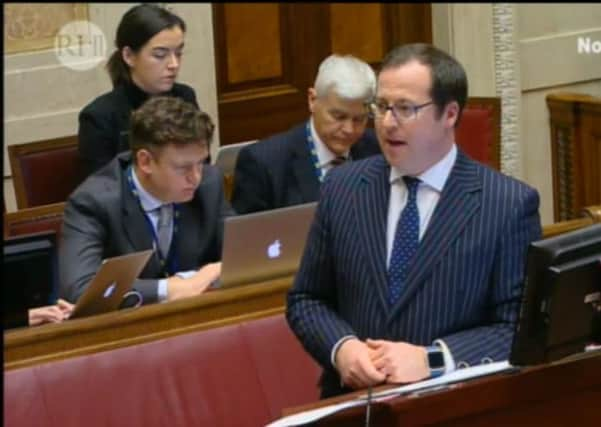Major consultancy paid £100k to advise on RHI made basic error


Cambridge Economic Policy Associates (CEPA) was paid £100,000 by Stormont to advise it on the design of its Renewable Heat Incentive (RHI) scheme and the consultants advised that there was no need for tiered tariffs – a crude way to control the scheme’s costs and energy use – which were present in the equivalent GB scheme.
That mistake was based on an even more critical error – the belief that fuel prices were higher than the proposed subsidy, so tiering to prevent a perverse incentive to waste heat was thought unnecessary.
Advertisement
Hide AdAdvertisement
Hide AdIn fact, the 2012 CEPA report, on more than one instance, showed that the cost of fuel for wood pellet boilers was lower than the level of the subsidy – a fundamental flaw which the department responsible for the scheme apparently did not realise until it had closed the incentive amid allegations of abuse and with a massive overspend.
The inquiry was told that internal CEPA emails which the inquiry has ordered the consultancy to hand over show that a senior figure at the business admitted in 2016 – ahead of the firm being called before Stormont’s Public Accounts Committee (PAC) to explain its role in the scandal – that it had made a serious “error...but we won’t call it that”.
CEPA has worked for governments all over the world and recently advised the Irish government on the RHI scheme which it introduced earlier this year.
Yesterday the public inquiry into the RHI scandal was shown a table in one of two CEPA reports which showed wood pellets costing on average 3.37 pence per kWh and wood chip 2.85p.
Advertisement
Hide AdAdvertisement
Hide AdTwo pages later, the report predicted that by 2015 the cost of wood pellets and chip would be 4p and 3p/kWh respectively.
However, three pages later, the report recommended that those boilers should receive a subsidy of 5.9p for every kWh of heat generated.
Inquiry chairman Sir Patrick Coghlin asked junior counsel to the inquiry Donal Lunny if, after recommending a subsidy greater than the cost of fuel, CEPA’s “defence to not warning about the need for tiering is that they weren’t asked”.
Mr Lunny said that the firm had said “we weren’t asked and it wasn’t within our remit; DETI ought to have noticed it”.
Advertisement
Hide AdAdvertisement
Hide AdSir Patrick interjected: “But they are the experts. They’re bringing professional qualifications to this and in their table they show or seem to show what, if you like, to use the phrase, the man in the street would understand would invite people to take up as much as they could.”
He added: “They say ‘we’re not liable’, if I understand it...‘we’re not liable because we weren’t told to do it’”.
Mr Lunny said that CEPA had told Stormont’s PAC that it should have spotted the problem but that “what they say now is that although they regret that they didn’t, that it was outside their remit; that DETI [the department] appear to have been asking for a single tariff and that DETI ought to have spotted it because they were a very well informed client.”
Sir Patrick said: “I don’t want to prejudge the evidence that’s coming but on the basis of what you’ve told me today it seems to me that there appears to be a radical difference between the attitude of CEPA in the PAC and the attitude in the statement they made to this inquiry - which may or may not reflect forensic intervention.”
Mr Lunny said: “They say the change is because at that point they hadn’t had the opportunity since then to reflect and look at the documents and properly consider what their role was.”